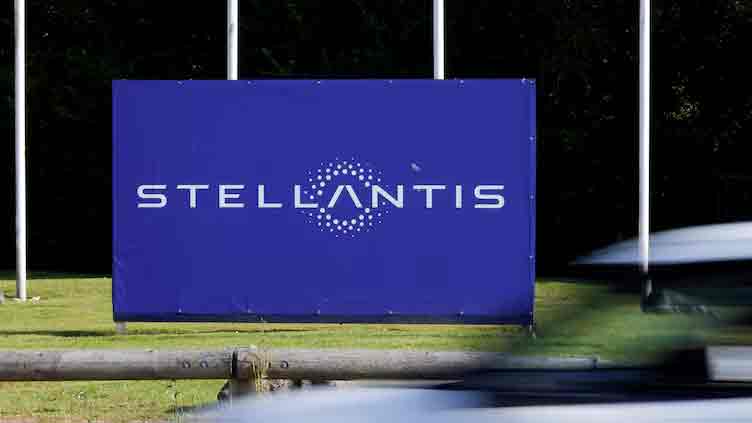Stellantis unveils technology to support flexible EV and hybrid auto production

Business
Stellantis unveils technology to support flexible EV and hybrid auto production
DETROIT (Reuters) - Stellantis is preparing to navigate the turbulent electric-vehicle transition with a new vehicle system that will support assembly of gasoline, hybrid and electric models, providing flexibility that will be especially important with Donald Trump returning to the White House.
The Franco-Italian automaker revealed details on Tuesday about its STLA Frame platform, which will support full-size trucks and SUVs. Platforms are thought of as a skateboard on which many different types of vehicles can be built, and include important electrical and mechanical components of the car.
"We are very focused on the execution of our plan, despite all the difficult challenges that the industry is facing," said CEO Carlos Tavares on a call with reporters.
Automakers in Detroit and elsewhere rushed into building EV-manufacturing capacity over the last two years, only for demand to grow more slowly than anticipated.
The decision of whether to focus on platforms that support EVs versus those that include flexibility for hybrids or gasoline-powered vehicles has split automakers. Ford Motor has leaned into selling hybrid vehicles, while General Motors has focused on battery-powered models after investing more up front into building its own EV platform. GM will start offering plug-in hybrids in 2027, it said.
Stellantis is mainly offering plug-in hybrids in the U.S. for now, but plans to ramp up EV sales in the coming years, chasing a goal of 100% battery electric car sales in Europe and 50% electric passenger car and light-duty truck sales in the U.S. by 2030.
The global industry faces even greater uncertainty around EV demand if Trump carries out plans to unravel various incentives around EV production and sales.
Boeing in a filing Monday said it had sent layoff notices to over 2,500 workers in the states of Washington, Oregon, South Carolina and Missouri.
The president-elect’s transition team is planning to kill the $7,500 consumer tax credit for electric-vehicle purchases as part of broader tax-reform legislation, two sources with direct knowledge of the matter told Reuters last week.


